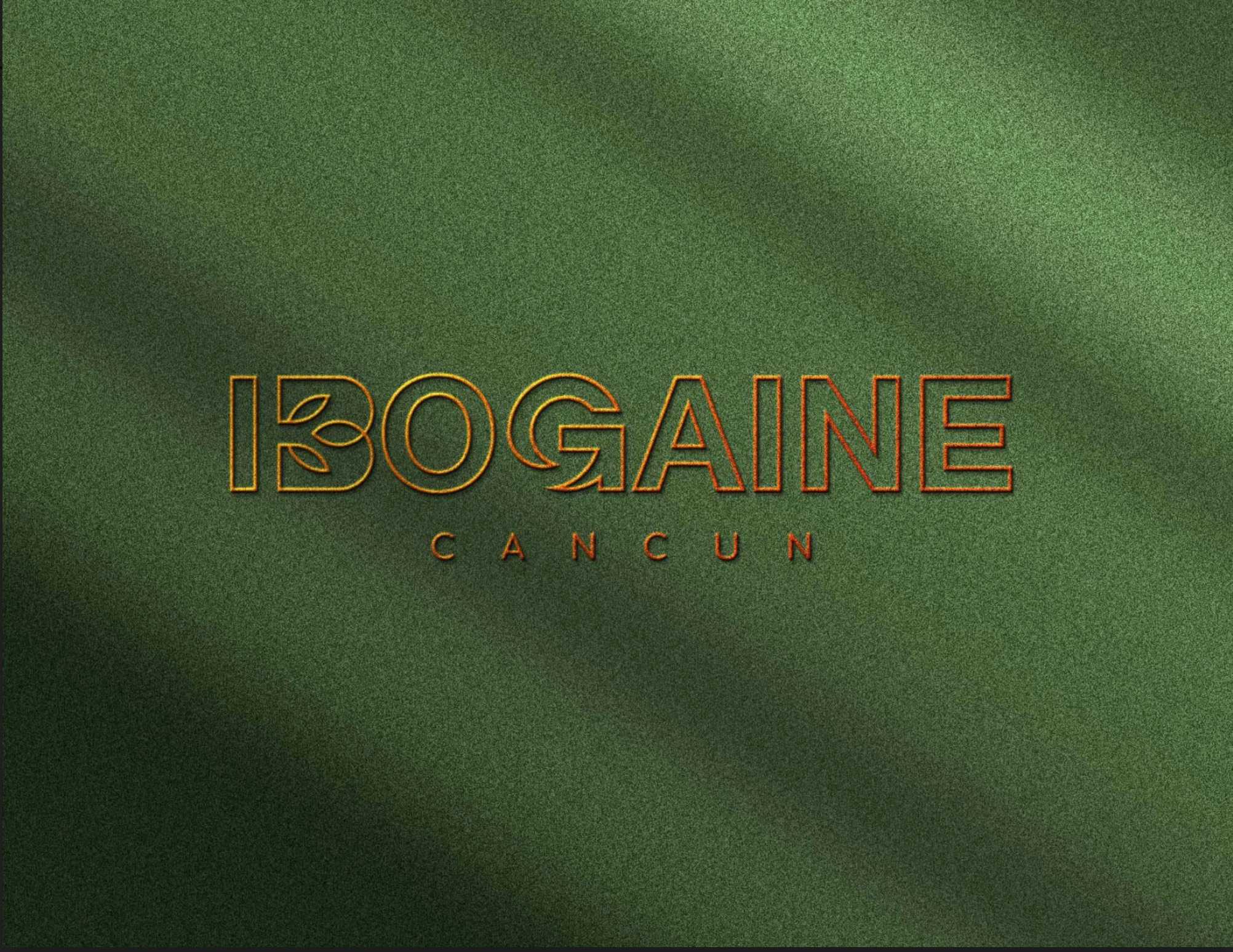
Reclaim Your Health: Understanding Revision Gastric Sleeve and Global Options
Embarking on a weight loss journey through gastric sleeve surgery is a courageous step towards a healthier future. For many, it's a life-changing success. However, for some, the initial procedure may not yield the expected long-term results, or new challenges like severe acid reflux might emerge. If you're experiencing weight regain after sleeve gastrectomy, struggling with persistent symptoms, or simply not achieving your health goals, you're not alone. This is where Revision Gastric Sleeve surgery comes into play, offering a path to reignite your weight loss journey and improve your quality of life.
This comprehensive guide will walk you through everything you need to know about revision bariatric surgery, from understanding why a gastric sleeve might fail to exploring your treatment options, recovery expectations, and crucially, how medical tourism can provide access to high-quality, affordable care for your revision procedure. We'll delve into common patient questions, such as "What to do when gastric sleeve fails?" and "How much does revision gastric sleeve cost worldwide?", providing clarity and empowerment for your next steps.
Why Might You Need a Revision Gastric Sleeve? (Symptoms of Failed Sleeve)
When an initial gastric sleeve surgery doesn't deliver the anticipated long-term benefits, or when new complications arise, it can be disheartening. Recognizing the signs that indicate a need for a revision procedure is the first step towards finding a solution. Patients often search for "symptoms of failed sleeve" or "what to do when gastric sleeve fails." Common indicators include:
- Significant Weight Regain: This is one of the most common reasons. After an initial period of successful weight loss, the weight starts to creep back, despite adherence to dietary and exercise recommendations.
- Insufficient Weight Loss: Some patients may not achieve their target weight loss from the outset, plateauing at a higher weight than expected or desired.
- Severe or New-Onset Acid Reflux (GERD): While some reflux can be managed, severe, persistent, and debilitating heartburn or regurgitation that wasn't present before can be a sign of a problem, often linked to changes in stomach pressure or shape.
- Chronic Nausea and Vomiting: Ongoing digestive issues that interfere with eating and quality of life.
- Stricture or Narrowing of the Sleeve: Although less common, this can cause difficulty swallowing and lead to nutritional deficiencies.
- Gastric Fistula or Leak: A rare but serious complication requiring immediate attention.
It's crucial to consult with a bariatric surgeon if you're experiencing any of these symptoms to determine the underlying cause and discuss potential solutions.
What Causes a Gastric Sleeve to Fail or Need Revision? (Causes of Sleeve Weight Regain)
Understanding "causes of sleeve weight regain" or why "stomach stretched after sleeve" is vital for preventing future issues and choosing the right revision approach. The reasons for needing a revision are varied and can be categorized into surgical or patient-related factors:
- Sleeve Dilation/Stretching: Over time, the remaining stomach pouch can stretch, increasing its capacity and allowing patients to consume larger portions, leading to weight regain. This is a common structural issue.
- Incomplete Sleeve Resection: If the initial sleeve was not cut tightly enough, a larger stomach pouch remains, reducing the restrictive effect.
- Poor Lifestyle Adherence: Despite surgery, bariatric procedures are tools, not magic cures. Consuming high-calorie liquids, frequent snacking, or not engaging in regular physical activity can undermine the surgery's effectiveness.
- Underlying Medical Conditions: Unmanaged hormonal imbalances or certain medications can contribute to weight regain.
- Hiatal Hernia: An existing or newly developed hiatal hernia can exacerbate reflux symptoms after a sleeve gastrectomy.
- Psychological Factors: Unaddressed emotional eating or mental health challenges can make long-term weight management difficult.
Identifying the root cause is critical for your surgeon to recommend the most effective revision strategy.
What Are the Different Types of Revision Gastric Sleeve Procedures? (Options After Gastric Sleeve Failure)
When searching for "options after gastric sleeve failure," patients will find several established surgical paths. The choice of revision procedure depends heavily on the reason for the initial sleeve's failure, the patient's overall health, and their specific symptoms. Common revision strategies include:
- Re-Sleeve Gastrectomy (Re-Sleeve): If the primary issue is sleeve dilation, a re-sleeve can be performed. This procedure involves removing additional stomach tissue to create a smaller, tighter sleeve, restoring the restrictive effect. It's often considered if the original sleeve was too large.
- Conversion to Roux-en-Y Gastric Bypass (RNY): This is a very common revision. If severe reflux (GERD) is the main problem, or if a re-sleeve isn't appropriate due to significant weight regain, converting the sleeve to a gastric bypass can be highly effective. The RNY bypass both restricts food intake and alters nutrient absorption, often resolving reflux symptoms.
- Conversion to Single Anastomosis Duodeno-Ileal Bypass (SADI-S) or Duodenal Switch (DS): These procedures are more malabsorptive than a standard bypass and are often considered for patients with very high BMIs or significant weight regain where a re-sleeve or RNY might not be sufficient. They involve connecting a section of the small intestine to the stomach (SADI-S) or bypassing a large portion of the small intestine (DS) to reduce calorie absorption.
- Banding of the Sleeve: Less common, this involves placing a restrictive band around the upper part of the sleeve to further limit food intake.
Each option carries its own benefits and risks, and a detailed discussion with your surgeon is essential to determine the best approach for you.
Am I a Candidate for Gastric Sleeve Revision Surgery? (Eligibility for Revision Bariatric Surgery)
Just like primary bariatric surgery, there are specific criteria for "eligibility for revision bariatric surgery." It's not a decision taken lightly. Generally, candidates for revision surgery:
- Have Documented Failure of the Initial Procedure: This includes insufficient weight loss (e.g., losing less than 50% of excess body weight), significant weight regain, or the development of severe complications like intractable GERD or strictures.
- Meet Specific BMI Criteria: While a BMI of 35-40 with co-morbidities or 40+ without is a general guideline, your surgeon will assess your individual situation.
- Are Committed to Lifestyle Changes: Revision surgery requires the same, if not greater, dedication to dietary guidelines, regular exercise, and behavioral modifications.
- Have No Contraindications for Surgery: Such as severe heart or lung disease, active cancer, or untreated substance abuse.
- Undergo Psychological Evaluation: To ensure mental preparedness and address any underlying issues that might have contributed to the initial procedure's failure.
- Are Fully Educated on Risks and Benefits: Understanding that revision surgery can be more complex than the primary surgery.
A comprehensive medical and psychological evaluation will be conducted to ensure you are a suitable candidate and to choose the safest and most effective revision plan.
What Does Recovery After Revision Gastric Sleeve Look Like? (Recovery Expectations)
Understanding "recovery from revision sleeve" is crucial for realistic expectations. While similar to the initial sleeve gastrectomy, revision surgery can sometimes be more complex due to scar tissue from the previous operation. Here's a general overview:
- Hospital Stay: Typically 1-3 days, depending on the complexity of the revision and your individual recovery.
- Pain Management: Pain will be managed with medication. Most patients experience discomfort rather than severe pain.
- Diet Progression: You will follow a strict post-operative diet, starting with clear liquids, progressing to full liquids, pureed foods, soft foods, and eventually solid foods over several weeks. This is vital for healing and preventing complications.
- Activity Restrictions: Heavy lifting and strenuous exercise are usually restricted for 4-6 weeks. Light walking is encouraged from day one to aid recovery and prevent blood clots.
- Return to Work: Most patients can return to light desk work within 2-4 weeks, though this varies by individual and job demands.
- Long-Term Follow-up: Regular follow-up appointments with your surgeon, dietitian, and possibly a psychologist are essential for long-term success, monitoring nutritional status, and addressing any challenges.
Adherence to post-operative instructions is paramount for a smooth recovery and successful outcomes.
What Are the Risks and Potential Side Effects of Revision Bariatric Surgery?
Patients often search for "risks of revision weight loss surgery" to be fully informed. While revision surgery can be incredibly beneficial, it's important to be aware that it carries a higher risk profile than the initial bariatric procedure. This is primarily due to existing scar tissue and altered anatomy. Potential risks and side effects include:
- General Surgical Risks: Bleeding, infection at the incision site, blood clots (DVT/PE), adverse reactions to anesthesia.
- Specific Bariatric Risks:
- Leakage: A leak from the staple line or surgical connections is a serious complication.
- Stricture: Narrowing of the stomach or intestine, causing difficulty eating.
- Bowel Obstruction: Scar tissue or twisting of the bowel can lead to blockages.
- Nutritional Deficiencies: Especially with malabsorptive procedures like bypass conversions, requiring lifelong vitamin and mineral supplementation.
- Ulcers: Can form at the connection points, particularly with bypass conversions.
- Dumping Syndrome: Especially after conversion to bypass, characterized by nausea, sweating, and diarrhea after eating high-sugar or high-fat foods.
- Increased Complexity: Revision surgeries are technically more challenging due to previous surgical alterations and scar tissue, which can prolong operating time and recovery.
Your surgeon will discuss these risks in detail and take all necessary precautions to minimize them.
How Much Does Revision Gastric Sleeve Cost Worldwide? (Cost Comparison)
When considering revision surgery, "cost of revision gastric sleeve" is a significant factor for many patients. Prices can vary dramatically based on the country, the clinic's reputation, the surgeon's experience, the specific type of revision procedure, and what's included in the package (e.g., hospital stay, pre-op tests, post-op care). Here's a general comparison:
| Country/Region | Estimated Cost Range (USD) | Key Considerations for Medical Tourists |
|---|---|---|
| United States | $18,000 - $35,000+ | Highest costs globally, but usually comprehensive care. Insurance coverage varies and is often limited for revisions. |
| Canada | $15,000 - $28,000+ | Similar to US, often with long wait times for publicly funded systems. Private options are expensive. |
| Mexico | $8,000 - $15,000 | Very popular for medical tourism due to proximity to US, affordability, and accredited hospitals. |
| Turkey | $7,000 - $14,000 | A growing hub for medical tourism, offering advanced facilities, experienced surgeons, and competitive prices. |
| India | $6,000 - $12,000 | Highly competitive prices with world-class hospitals and surgeons, particularly for international patients. |
| Poland | $9,000 - $16,000 | Good option in Eastern Europe, offering quality care at more affordable prices than Western Europe. |
These figures are estimates and can fluctuate. It's always best to get a personalized quote from several providers.
Why Should I Consider Revision Gastric Sleeve Surgery Abroad? (Medical Tourism Benefits)
Many patients explore "medical tourism for revision bariatric" due to the compelling advantages it offers:
- Significant Cost Savings: As seen in the table above, the cost of revision surgery can be dramatically lower abroad, often including travel and accommodation, making it an accessible option for many.
- Access to Immediate Care: In countries with long wait lists for bariatric surgery, traveling abroad can mean receiving timely treatment without delays.
- High-Quality Care and Experienced Surgeons: Many international hospitals specialize in bariatric surgery and boast highly qualified, English-speaking surgeons trained in Western techniques. They often treat a high volume of international patients, leading to specialized expertise.
- Privacy and Discretion: For some, undergoing a medical procedure away from home offers a greater sense of privacy.
- Advanced Facilities: Top medical tourism destinations invest heavily in state-of-the-art hospitals and technology to attract international patients.
- Combine Treatment with Travel: While the focus is on surgery, the opportunity to recover in a pleasant environment or explore a new culture (pre-surgery, with caution) can be appealing.
The decision to go abroad for surgery is personal, but for many, the benefits outweigh the challenges.
Which Countries Offer the Best Value and Quality for Revision Gastric Sleeve? (Destinations & Safety)
When searching for "best countries for revision bariatric surgery," certain destinations consistently stand out for their combination of affordability, quality, and experience with international patients:
- Mexico: Particularly cities like Tijuana, Guadalajara, and Monterrey, are popular due to their proximity to the US, numerous specialized bariatric clinics, and significantly lower costs. Many surgeons are US board-certified or trained.
- Turkey: Istanbul and Antalya are prominent medical tourism hubs. Turkey offers modern hospitals, highly skilled surgeons, and all-inclusive packages that are very attractive to patients from Europe and beyond.
- India: Renowned for its advanced medical infrastructure and highly experienced surgeons, India provides world-class care at a fraction of the cost, making it a strong contender for patients seeking "traveling for weight loss surgery revision."
- Poland & Czech Republic: For European patients, these countries offer excellent medical care within the EU, with transparent pricing and skilled surgeons.
How to Ensure Safety and Quality Abroad:
To "ensure safety and quality abroad for revision sleeve," research is paramount:
- Accreditation: Look for hospitals with international accreditations like Joint Commission International (JCI), which signifies adherence to global healthcare standards.
- Surgeon Credentials: Verify the surgeon's qualifications, experience in revision bariatric surgery, and patient testimonials.
- Package Inclusions: Understand what's covered (e.g., pre-op tests, hospital stay, surgeon fees, anesthesia, post-op follow-up, transfers).
- Communication: Ensure clear communication with the medical team, preferably with English-speaking staff.
- Post-Operative Support: Confirm what kind of follow-up care is provided once you return home.
- Travel Logistics: Plan your travel, accommodation, and ensure you have adequate time for recovery before flying back.
What Should I Expect When Traveling for Revision Gastric Sleeve Abroad, and What Are Patient Success Stories? (Logistics & Outcomes)
When preparing for "traveling for weight loss surgery revision," logistics are key. Here’s what you can generally expect:
- Initial Consultation & Planning: This often starts with virtual consultations, sharing medical records, and selecting a clinic/surgeon. A medical tourism facilitator like PlacidWay can streamline this.
- Travel & Arrival: Arrive a few days before your scheduled surgery for pre-operative tests and consultations.
- Pre-operative Evaluations: Expect blood tests, imaging (like endoscopy or barium swallow), and consultations with the bariatric team (surgeon, anesthesiologist, dietitian).
- The Procedure: The surgery itself, followed by a hospital stay (as discussed in recovery).
- Post-operative Recovery Abroad: You'll likely stay in the destination country for 1-2 weeks after discharge to allow for initial healing and a final post-op check-up before flying home.
- Follow-up Care at Home: Arrange for ongoing follow-up with your local doctor and support team.
Patient Success Stories from Abroad:
Many "patient stories revision sleeve" from those who traveled abroad echo a common theme: renewed hope and significant improvement. For instance, Sarah, who had her original sleeve in the US but struggled with reflux, found relief after a sleeve-to-bypass conversion in Mexico, losing an additional 60 pounds and resolving her GERD. Mark, facing weight regain after 5 years, opted for a re-sleeve in Turkey, finding the care exceptional and his weight loss back on track. These stories highlight:
- Effective Weight Loss: Many patients achieve their weight loss goals after revision, often losing an additional 50-70% of their remaining excess weight.
- Resolution of Complications: Severe reflux, strictures, and other adverse symptoms are frequently resolved, dramatically improving quality of life.
- Improved Health Markers: Reduction in co-morbidities like diabetes, high blood pressure, and sleep apnea.
- Enhanced Quality of Life: Increased mobility, confidence, and overall well-being.
These outcomes demonstrate that with careful planning and choosing accredited facilities, revision gastric sleeve surgery abroad can be a highly successful and transformative experience.
If you're considering a revision gastric sleeve, remember that it's a journey of self-advocacy and informed decision-making. Exploring options through medical tourism can open doors to quality care that might otherwise be out of reach.
Take the Next Step with PlacidWay
Ready to explore treatment options abroad? Discover top clinics, compare prices, and get a free quote tailored to your needs with PlacidWay.
Affordable Obesity Surgery Abroad | Best Bariatric Surgery




.png)
.png)
.png)
.png)

Share this listing